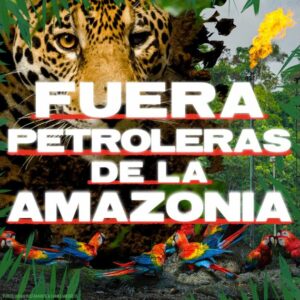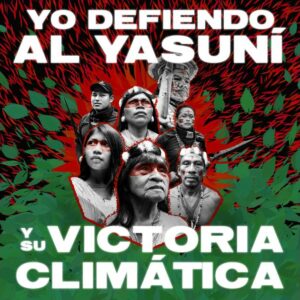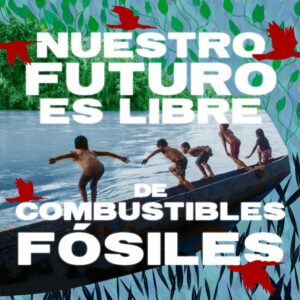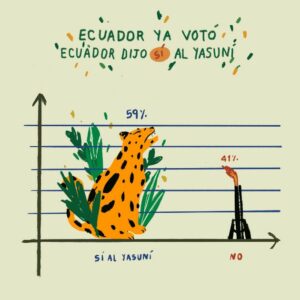Press Release by Center for Justice and International Law (CEJIL) & Amazon Frontlines.
Sucre, February 12, 2018 – The Colombian State has failed to comply with precautionary measures ordered by the Inter-American Commission on Human Rights (IACHR) in the Siona People’s case, increasing the risk of their physical and cultural extermination.
“In spite of the Siona community’s consistent attempts to reach out to the State and cooperating with all of the State’s requirements to reach an agreement on the implementation of protective measures — threats and harassment towards members of the Siona community, mobility restrictions and the enforcement of codes of conduct by armed actors, the recruitment of local youth and the presence of anti-personnel mines in the territory, continue to have a serious impact on the security, integrity and life of the Siona People of the Gonzaya (Buenavista) and PoPiyuya (Piyuya) Reserves,” Amazon Frontlines’ lawyer, Lina María Espinosa, remarked.
These were some of the statements made by Amazon Frontlines, the Center for Justice and International Law (CEJIL), the National Organization of the Indigenous Peoples of the Colombian Amazon (OPIAC), the Operational Secretary of the Commission on Human Rights of the Indigenous Peoples of Colombia (CDDHHPI), José Alvear Restrepo Lawyers’ Collective (CCAJAR) and (CODHES) the Consultoría para los Derechos Humanos y el Desplazamiento during a working meeting held in the course of the IACHR’s 171st Period of Sessions in Sucre (Bolivia).
While the Colombian Foreign Ministry recognized that it was aware of the proposal made by the Siona People and developed an institutional plan based upon it, the petitioners indicate that it does not meet the community’s requirements and instead attempts to impose a culturally inadequate methodology, one that is incompatible with how the Siona People make decisions and self-govern. On the other hand, budgetary obstacles have often been cited by the State as an argument to avoid the working meeting with the Siona in territory to come to agreements on necessary actions. Likewise, in spite of explicit invitations from Siona leaders, the State has refused to hold the meeting in Siona territory without the accompaniment and participation of members of the armed forces.
The working meeting was held just a few days before a public hearing with the Colombian State during which the risks faced by indigenous peoples and those that defend them will be addressed. According to the National Indigenous Organization of Colombia (ONIC), 30 indigenous leaders were killed in 2018, and two more Awá leaders at the end of the same year. The violence and impunity that prevail in this context affect the prospect of self-government, community life, and the ability to practice traditions and culture. The Siona, in particular, have been identified by the Colombian Constitutional Court as a part of a group of 36 peoples at risk of physical and cultural extermination since 2009, due to actions carried out by armed groups operating within the framework of post-armed conflict Colombia. This grave situation persists and continues to escalate due to pressure from the multinational oil company, Amerisur, and several armed actors. Leaders of this community have faced harassment, criminalization, and prosecution for defending their territory.
“To date, the State continues to fail in the implementation of effective, systematic, and culturally appropriate measures to safeguard the territorial rights of the indigenous people and protect the life and integrity of the Siona,” stated Francisco Quintana, CEJIL’s director for the Andean, North American and Caribbean Region. “Meanwhile, the murder rate for indigenous leaders is on the rise and in the case of the Siona, their precarious situation intensifies from one day to the next. Colombia is losing an important part of its heritage, and a country that doesn’t recognize its heritage is a country without a future.”




